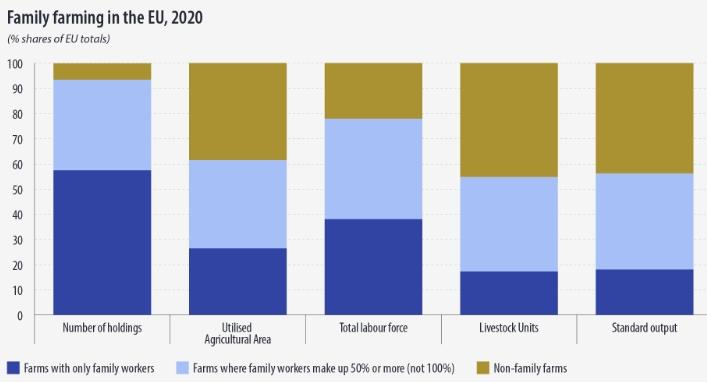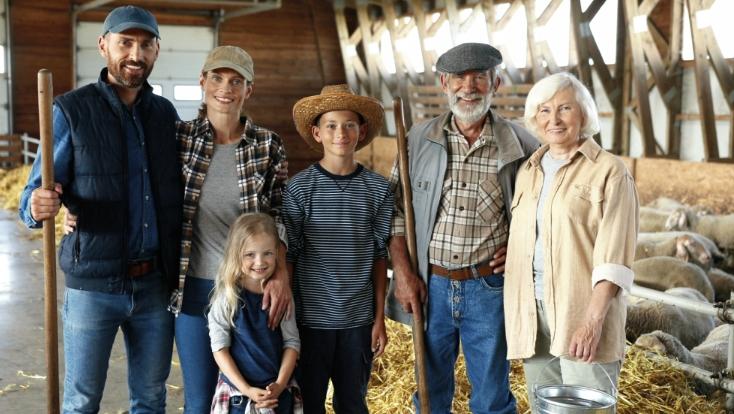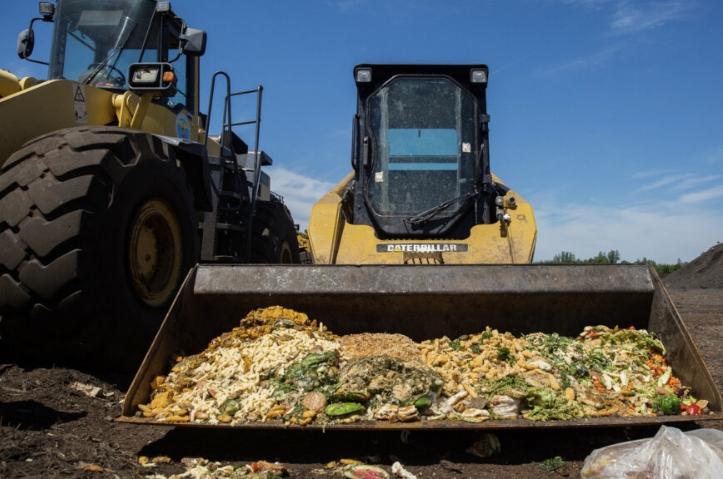In 2020, the EU was home to 9.1 million farms, and a staggering 93% of them were family farms. This means that the farms were primarily run by families, with family members contributing to more than half of the agricultural labor.
- 57% of these farms operated solely with the farm holder and their family.
- For 36% of farms, family members made up at least half of the entire labor force.

Family farms played a significant role in the EU’s agriculture in various aspects:
- They used about 61% of the 157.4 million hectares allocated for agriculture.
- Employed almost 78% of the total agricultural labor force.
- Raised almost 55% of the livestock.
- Produced approximately 56% of the standard output.

In contrast, non-family farms, which were only 7% of the total number of farms in 2020, had:
- Usage of roughly 39% of agricultural land.
- Employment of about 22% of the total agricultural labor force.
- Ownership of approximately 45% of livestock units.
- Generation of about 44% of the standard output.
While family farms made up more than 80% of all farms in most EU countries, Estonia (65%) and France (58%) were notable exceptions.
On the other hand, countries like Greece, Romania, and Poland had nearly 99% of their farms classified as family farms.



